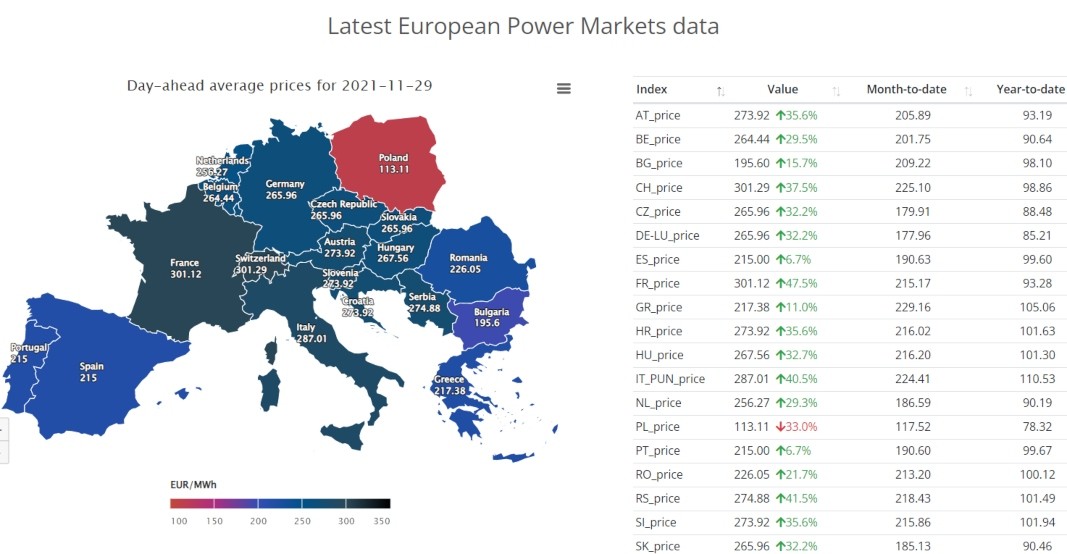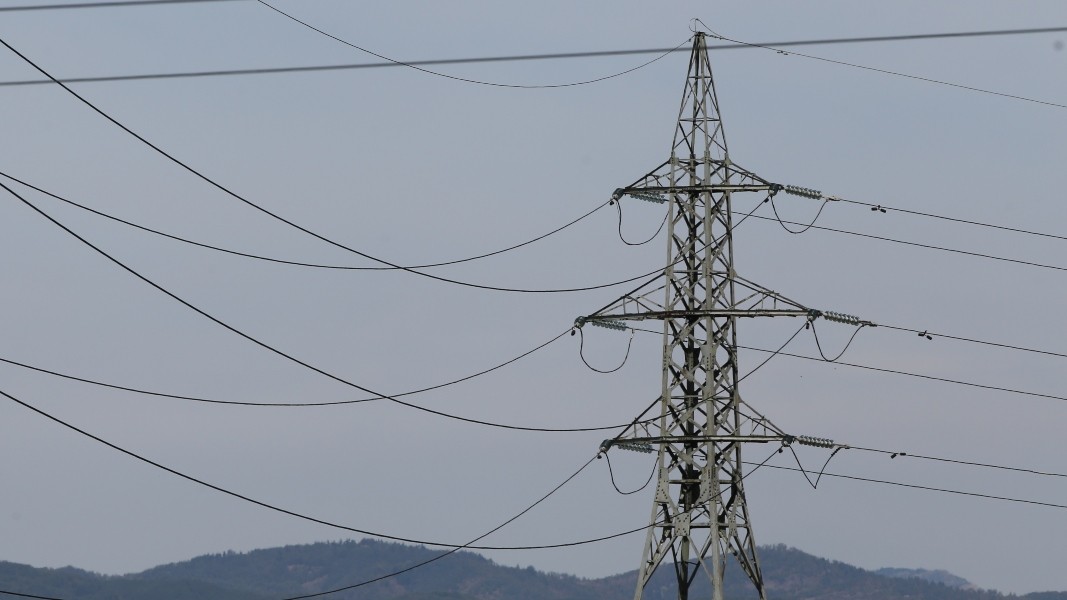Electricity prices in Bulgaria and other EU countries have been skyrocketing recently. Meanwhile, profits of the energy companies have also increased. According to latest financial statements, the profit of the state-owned National Electric Company amounted to EUR 142 million in the first nine months of 2021, whereas its profit in the same period last year stood at EUR 307,000 only. Electricity prices on the Independent Bulgarian Energy Exchange (IBEX) exceeded EUR 260 per 1 MWh. Thus, Bulgaria placed among the EU countries with the highest electricity prices, Money.bg informs. Meanwhile, Bulgaria continues to export electricity for a little over EUR 100 per 1MWh.
So far, household customers have not yet felt the recent price increase, because they buy electricity in the regulated energy market. However, this will change on January 1 next year. According to experts, the price of electricity for households will increase between 20% and 50%. Meanwhile, Bulgaria remains the poorest EU member state with an average salary amounting to EUR 789. Therefore, many people may experience energy poverty and may need state assistance to pay their bills.
The authorities are already moving in that direction. However, such decisions are difficult without the existence of a regular cabinet and a functioning parliament. Meanwhile, the expensive electricity has affected the prices of goods and services and in October 2021, the annual inflation reached 6%.
Unlike households, the companies have already received a state aid to the tune of EUR 56 per megawatt. According to representatives of Bulgaria’s business, this money is not enough. They demand compensations amounting to EUR 97 per 1 megawatt. On this occasion, the Bulgarian Employers Association has sent a letter to this country’s caretaker Premier Stefan Yanev. “We believe that the compensatory mechanist must remain in place, if prices remain extremely high”, the letter of the Bulgarian Employers Association reads.

For his part, Bulgaria’s caretaker Minister of Energy Andrey Zhivkov said that the total amount earmarked for energy assistance in October and November amounts to nearly EUR 225 million. “The new National Assembly should be functioning in December and it has to decide whether to provide subsidies for businesses”, Minister Zhivkov went on to say and added: “The National Assembly may resort to other measures – to reduce taxes and excise duties for natural gas, electricity, etc.”
Nobody knows how long the surge in electricity prices will last. Some analysts contend that prices will return to normal levels after the winter. In any case, the condition of many households and companies is getting worse. The situation would look even more disheartening, if we take the latest increase of gas and heating prices into account.

Everyone, except for the energy companies are on the losing streak. The future does not look so bright for consumers against the backdrop of the inevitable closure of the coal-fired thermal power stations and the uncertainty surrounding the possible expansion of nuclear capacities via the construction of a new nuclear power plant or the extension of the existing NPP in Kozloduy.
Written by: Vladimir Subev
English version: Kostadin Atanasov
Photos: BGNES, EnergyLiveA Bulgarian-Greek Business Forum with the participation of nearly 60 companies from both countries has opened today in Sofia . The forum is organized by the Bulgarian-Greek Chamber of Commerce and Industry and the Bulgarian Chamber of Commerce and..
Bulgaria has favorable climatic conditions for producing electricity from the su n, even in the transitional seasons of spring and autumn. One of the cities with the best conditions for using photovoltaic systems is Dupnitsa. The southwestern..
In 2024, the average gross annual salary in Bulgaria is 27,881 BGN (EUR 14,255), according to preliminary data from the National Statistical Institute. Compared to 2023, this marks an increase of 13.9% , with the public sector seeing an increase of..
A working individual living in a one-person household needs a net monthly income of 1,521 BNG (EUR 747) to cover basic needs. A three-member..
Bulgaria’s debt for 2024 amounts to BGN 48.846 billion (EUR 24 billion), or 24.1% of the country’s GDP, preliminary data from the National Statistical..

+359 2 9336 661
